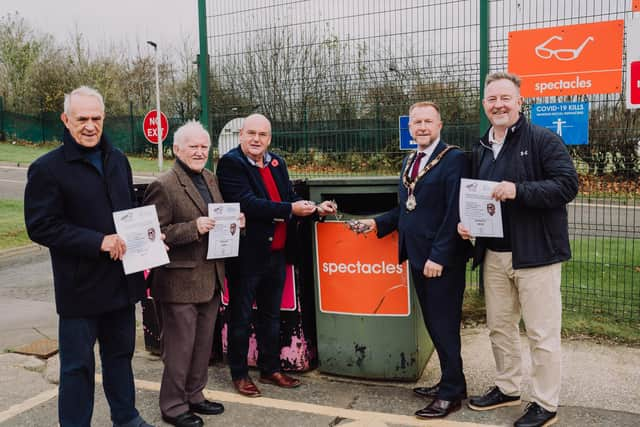Spectacle recycling scheme to help people in developing countries
and live on Freeview channel 276
Residents can bring their old spectacles - along with the case if available - to any of the council’s five recycling centres across the borough and put them in dedicated used spectacle containers.
They will then be collected by the Lions Clubs before being sent to Lion Medico in France - the international humanitarian arm of Lions Clubs - for repair and redistribution around the world.
Advertisement
Hide AdAdvertisement
Hide AdEvery year, over 300,000 pairs of spectacles are sent to Medico France, with donations by UK Lions Clubs accounting for more than half of the total number.


Mayor of Antrim and Newtownabbey, Ald Stephen Ross said: “I’m delighted the council has joined forces with Antrim and Carrickfergus Lions Clubs to promote this worthy cause and I’d urge residents to donate any unwanted spectacles they might have.
“This initiative will not only help those most in need, it will also reduce waste to landfill and demonstrate the benefits of the circular economy, where items are repaired and used again rather than being thrown away.”
A spokesperson for Antrim and Carrickfergus Lions Clubs added: “We’re pleased to be involved with this great project. As a worldwide charity, Lions International have five global causes, which try to reduce the prevalence of diabetes, hunger, childhood cancer, improve the environment and combat vision problems.
“The partnership is a great example of how local charities and the council can combine to help improve our own environment while at the same time helping to address those at risk and vulnerable.”